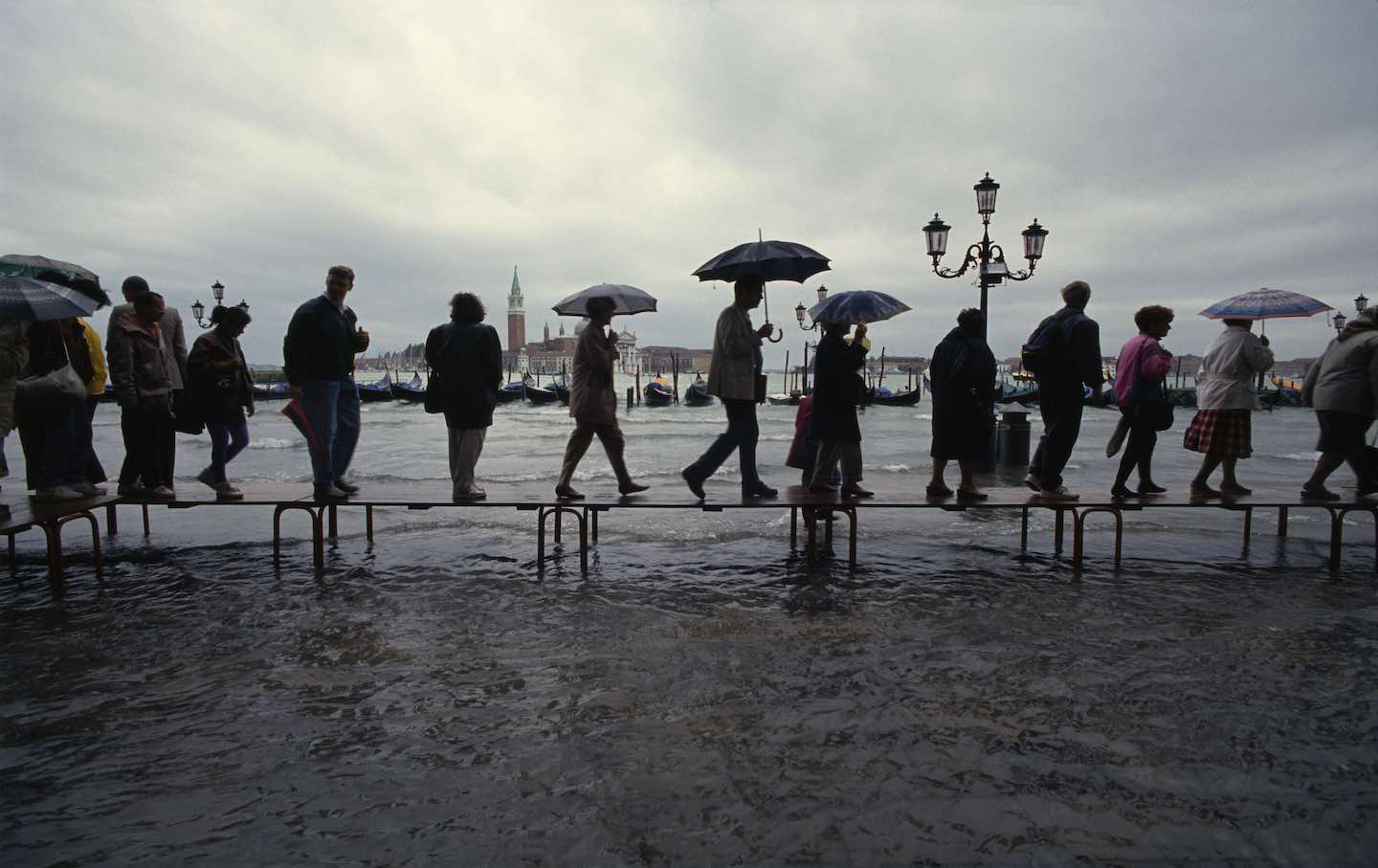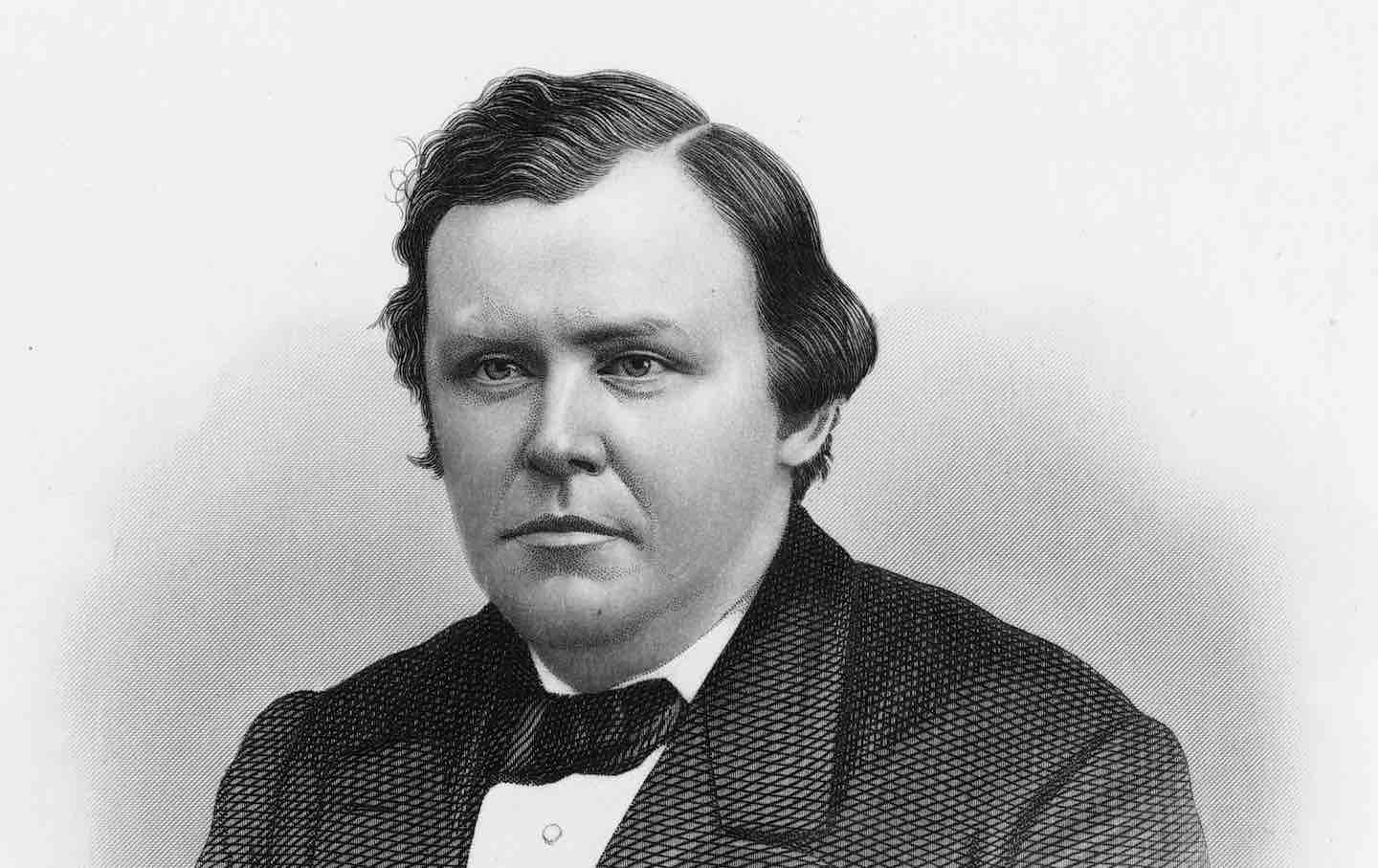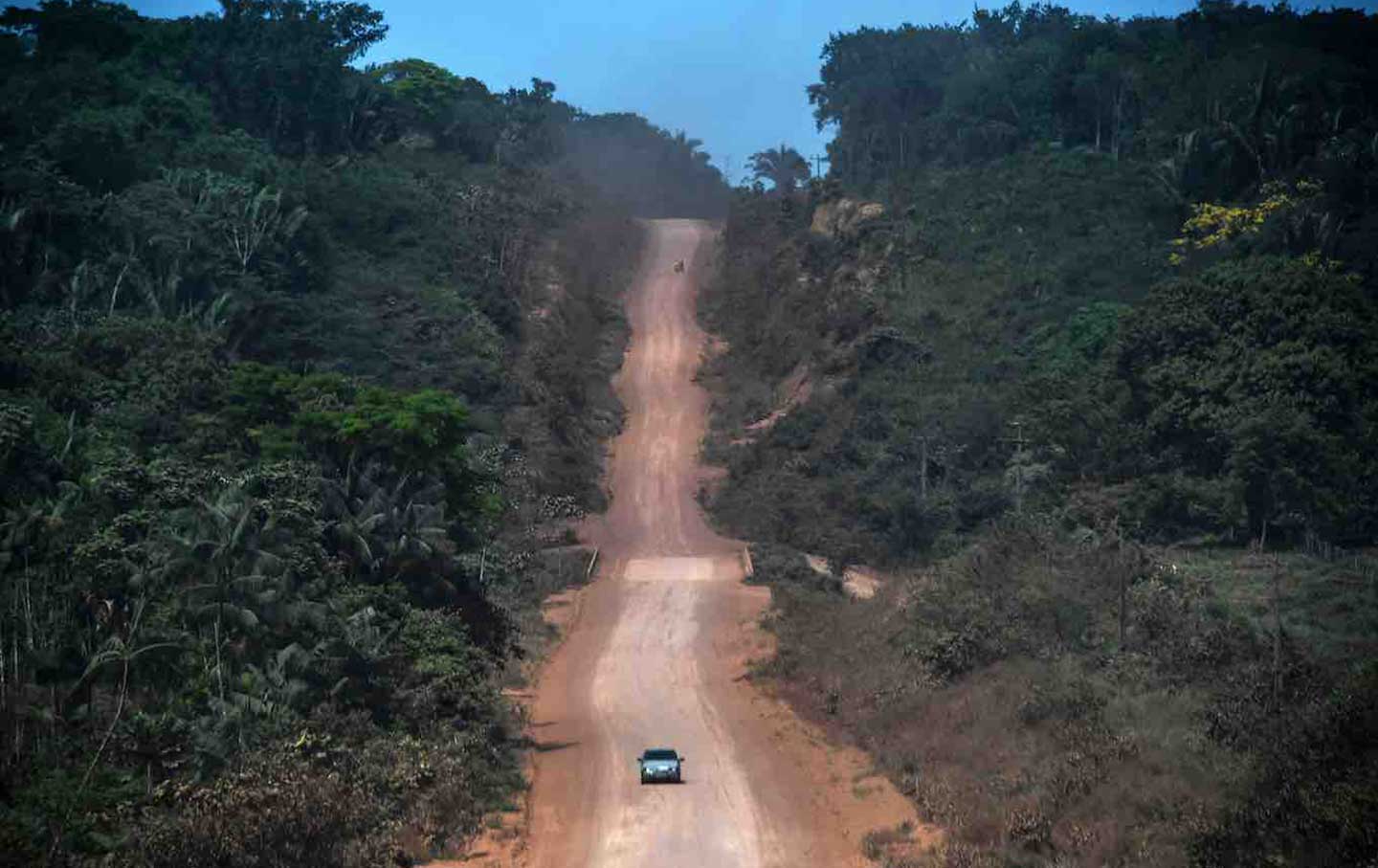Poetry for Sinking Places and Sinking People
Ange Mlinko’s Venice is a collection of poems about cities, ruin, and humanity’s capacity for self-destruction.

Locals and tourists walk on gangplanks through the flooded city center of Venice.
(Photo by Alberto Pizzoli / Sygma / Sygma via Getty Images)Venice is sinking. Venice is always sinking. It has been sinking for a long, long time, and it will continue to do so; such is the nature of this changeling city, an experiment in coaxing solid ground from the waters of a lagoon. Since its inception, Venice has been characterized by its dualism—half in and half out, partly dry and partly wet—and it is this quality that has long lent it an air of mystery. It is a place of obsession, as seen in Thomas Mann’s Death in Venice and Jeanette Winterson’s The Passion. It is a place of half-truths and spying, of the kind practiced by Sophie Calle in her Suite Vénitienne. It is beset by ghosts and phantoms, as per Nicolas Roeg’s Don’t Look Now. It is a city that, always, manages to draw even its prodigal sons back in: “Every time I describe a city,” claims Marco Polo in Italo Calvino’s Invisible Cities, “I am saying something about Venice.”
Books in review
Venice
Buy this bookIt is fitting that this waterlogged city, defined by its sense of the peculiar, should have a double, a namesake, in the New World, haunted by similar environmental fates. And it is both the original (Venice, Italy) and its American twin (Venice, Florida) that are the title and preoccupation of Ange Mlinko’s latest poetry collection, Venice, a book that is as much about slippage in general—between languages, time periods, and locations—as it is about these two Venices in particular. Like a masked reveler at the famous Carnivale, Mlinko’s Venice delights in what is hidden, and what happens when meanings blur. That’s the fun of it all; as Mlinko writes early on in the collection, “Venice is a game for one”—a place of tricks.
Mlinko, born in 1969 in Philadelphia and based now, after a stint in Beirut, in Florida, is a poet who is committed to formal rhyme schemes—an increasing rarity among contemporary American poets. “Poetry for me isn’t just talking,” Mlinko explained in a recent interview. “It is a ceremonious language, and it’s also musical. It’s more like dancing where prose is like walking. That’s probably why my poems end up being so formal—I need constraints on the language to yield surprise and delight.” Many of the poems in Venice are sestinas, a complex and winking form consisting of six stanzas of six lines each, with line endings that rotate in a set pattern; with its roots in the songs of 12th-century French troubadours, it’s a form that requires both mathematical precision and a light touch to make it all look easy.
In both her focus on these older poetic forms and her choice of subject matter—a sinking city in Italy, a coastal city in Florida, and the looming dangers posed by humankind’s destructive tendencies—the poems of Venice work to merge the living with the dead. The collection’s first poem speaks of “the place where the Venetians / witnessed the Ottomans flay / their commander”: This place is the island of Cyprus, where the goddess Venus (who lends her name to the collection’s first section) was supposed to have been born, rising from the sea not unlike the floating streets of Venice. “In or around 1929 the character of dreams changed,” begins the next poem, “Scales and Probability,” a clear reference to Virginia Woolf’s famous line concerning the rise of Modernism (that “on or about December 1910 human character changed”). In Woolf’s original, there is the feeling of daylight, of new beginnings; she goes on to describe the waning Victorian era as one of darkness, “formidable, silent, obscure, inscrutable.” Mlinko’s version, focused as it is on dreams, with their associations of nighttime and the irrational, is a photo negative of Woolf’s, and the poem itself mostly describes a chance encounter between the physicist Enrico Fermi and the composer Ottorino Respighi. But wait—by its third section, the poem shifts rapidly, abruptly, from this literal meeting of science and art into the interiority of an “I.”
Who is this “I”? As Venice continues, her contours will emerge, her sense of character and place: She is an American, a mother, a keen observer of the frivolities and heartbreaks that make up human life. In the first section of Venice, she’s in Italy; in the second, America. The book itself begins with an epigraph from Henry James, that consummate American in Europe, and parallels between the two places are frequently drawn. Hester Prynne is called “a great Venetian” for “stitching those rococo masks of hers”; Elizabeth Bishop, another great literary expatriate, lends an epigraph to the beginning of the fourth and final section. At one point, the relationship between the US and the foreign becomes explicitly political: “On the outdoor screens,” writes Mlinko in “The Whisper Networks,” “a new horror / was unscrolling from America,” a subtle nod toward the increasing insanity of American politics post-2016. Throughout Venice, Mlinko’s “I” drifts self-consciously from Old World to New, her gaze sharp whenever she observes the commonalities shared by the two: She seems to imply that caught between these two Venices is a sense of humankind’s own self-destruction.
The past rears its head again, merging with the now, in what might be one of the book’s most arresting poems, “According to Ovid, the Hottest Summer on Record.” Appearing in the book’s third section, where continental time and space intermingle more freely with America’s than in the stricter divisions of the previous chapters, the poem draws from Book II of Ovid’s Metamorphoses in its attempt to situate climate change into the greater scheme of human history. On the page, the poem’s stanzas are severely separated into two opposing columns, the effect being, as one reads over them, of an abrupt leap between words, ideas, and eras. “If all the fossil fuel,” ends the first stanza, “spent in engines / in the span of a century / could raise ocean temps / by a degree / then should we say / we’ve been here before?” She seems to say that climate change is not merely a problem of the present but one about history and its lessons concerning human hubris, the refusal to see the present as a continuum with the past. Reading this poem after the summer of 2022, with its extraordinary heat waves, the page takes on a haunted quality, all those long-dead Romans rising up again to walk among the living readers.
There is a similar metamorphic, transformative effect to the language Mlinko uses in Venice, each poem saturated with full rhymes, half rhymes, intertextual references, and cross-lingual punning. Occasionally, these can come across as slightly affected (the slant rhyme of the couplet that appears at the end of “Country Music”’s first stanza, “Why it should feel scandalous, dunno— / not yet twelve, she’d come from Sao Paulo,” feels somewhat strained). But for the most part, Mlinko’s obvious delight in the dizzying effects of language is infectious, and the way it bends under her grasp is amazing to see, like a snake going limp in a charmer’s hands.
Reading the bassoon-themed puns of “Hurricane Florence” (“What I need is a double read / of the hurricane. What fagotto—”) contains the same pleasure of solving a vexing problem in logic as does the moment of recognition, while reading “Sleepwalking in Venice,” that the “mon ange” that Mlinko at one point refers to seems to be herself, Ange Mlinko. In other moments, she is audacious, rhyming “tendril” with “nostril” in “La Casa del Diavolo” or forcing a rhyme between “tones” and “cojones” in “Moth Orchid.” The latter may not really land per se, but there’s something daring in the attempt to bring the rhyme into being. It’s a fitting beginning, too, for a poem concerning motherhood that ends by observing “the parent who must hybridize / both mother and father in her kids’ eyes.”
This idea of the “hybrid,” of a cross-pollination between societal roles, foreign places, parallel time frames, and multiple languages, is essential to Venice. Perhaps this is why gardening and flowers—in particular, the rose, which has thousands of cultivars—are referenced in so many of the book’s poems. When an arborist comments on a tree’s “bad form,” it is a moment of shame; in “Bees in Cider,” a bee lights on a rose and performs a pollination between languages when Mlinko reverses the English words “lit on” later in the poem for the French on lit, “we read.” A poem set inside of a nursery traverses time when it recalls the roses planted and cultivated by the Empress Josephine following her separation from Napoleon, a practice that “shades / science into art.” This is not the first time in this collection that the two have blurred; recall, for instance, the meeting between Fermi and Respighi that opens the book. And what is poetry—in particular, the schematically precise kind favored by Mlinko—if not a blurring of science and art?
Like a botanist bent over a Punnett square, Mlinko traces the genotypes of word and place in her poems, scratching out rhythmic patterns and puns to fuse new from old. What she writes about might be recognizable, but she hybridizes these references with one another until they become a wholly new variant. By the collection’s last poem, “Venice, Florida,” the process is complete. One Venice has transformed into the other; the “I” of the earlier poems has become a “you.” The man-made (electricity) is likened to the natural (“butterfly filaments”). A metamorphosis has taken place, or perhaps an evolution.








